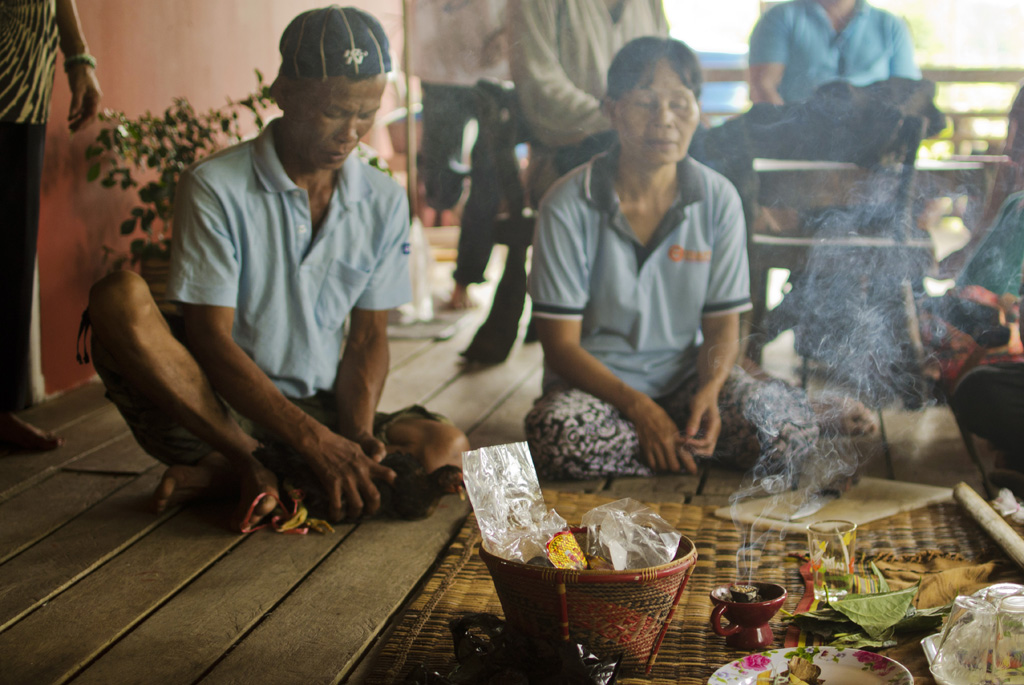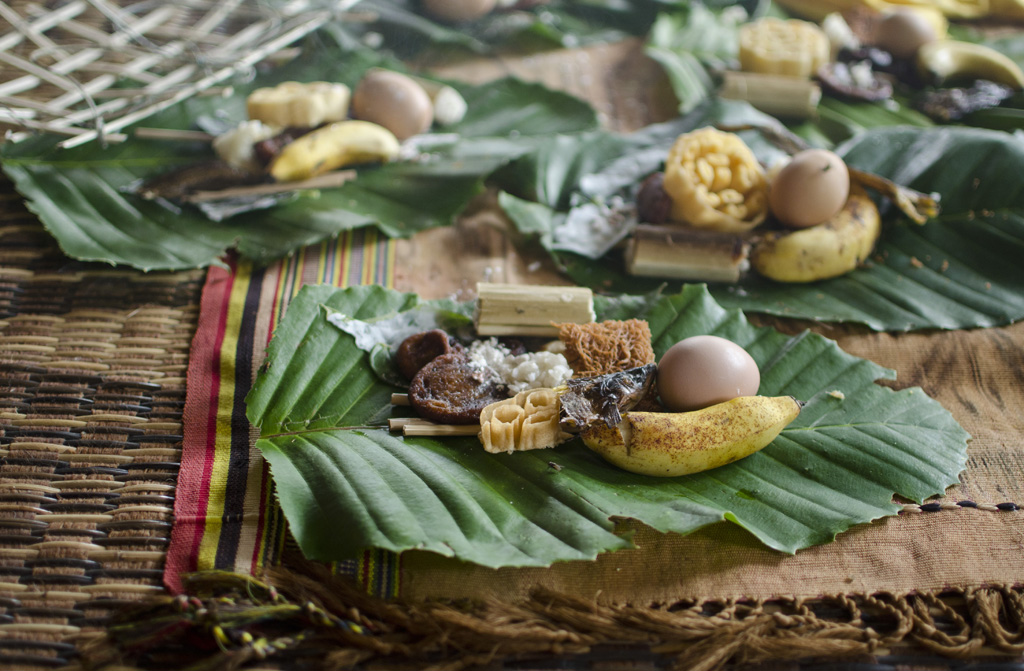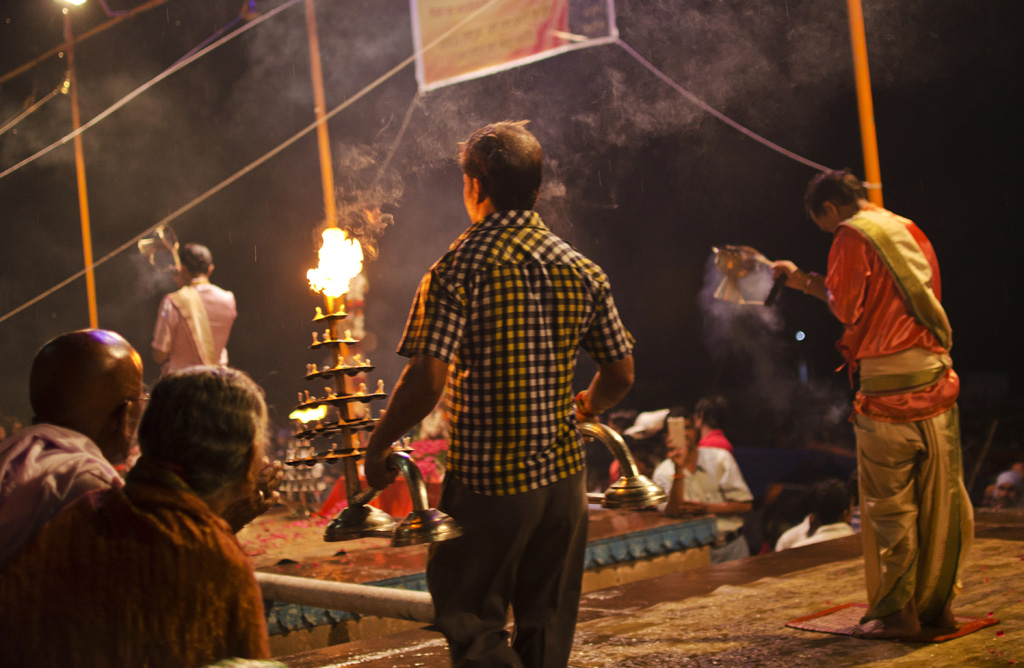Almost every indigenous tribe has developed their own ceremonies that involve words, song, ritual or dance that have been carried out generation after generation. Unfortunately more and more of these traditions are getting lost as countries become increasingly developed and people get accustomed to a more modern way of life.
Experiencing Authenticity
Usually you can find some remnants of indigenous ceremonies even in the most developed travel destinations. For instance, if you visit Hawaii, you'll still get a chance to see a lot of traditional rituals and dance, but a lot are produced as attractions for tourist dollars. Despite the impressive clothing, skillful dances, and traditional accuracy of what's taking place, if there wasn't a salary paid, not too many of the performers would still show up each night.
As much as I enjoy and am fascinated to watch these kind of staged performances, something about it feels wrong on some level, especially when considering the historical context. That as the 'civilized world,' we exploited and changed indigenous lives forever and now only care to preserve the more entertaining parts of their tradition and culture.
 Members of the Dayak tribe participating in a ceremony on the island of Borneo.
Members of the Dayak tribe participating in a ceremony on the island of Borneo.
There are no words that can describe the feeling of walking at night through the forest and coming across a village where locals are circled around a fire and there's a shaman leading a chant. There is something so pure and natural about it, and you would never want to do anything to spoil it. As much as you'd love to take part, you feel that doing so would slightly stain the purity of it all. After having such an encounter, the idea of watching a bunch of hula dancers at the Hilton bar doesn't do much for you anymore. It's kind of like when you see an animal at a zoo it is such a different feeling from catching a glimpse of the same animal in the wild. No, I am not equating traditional performers on stage to animals in the zoo. What I am trying to say is that being a spectator of something that's real, genuine, and authentic can be so much more powerful. It allows you to feel new things and think differently about life.
How to Find a Real and Authentic Ceremony
So how do you discover an authentic indigenous ceremony? Unlike showing up at 8pm at your hotel dining area, it'll take a wee bit more inquiry and investigation. Most real authentic ceremonies don't take place every night or even every Thursday night. Sometimes they'll only take place a handful of times throughout the year, so you have to have some amount of patience, planning or luck. Most importantly, if you're doing a more extended travel, it requires always keeping an eye out for them or asking around from time to time if anything is taking place.
Looking up online when certain holidays are or what season you will see them more often will be a good start when planning your trip. Beyond that there's not much more you can do before you actually touch ground. Once you arrive at a destination, asking locals around the area is generally the best strategy. While some people are more closed about inviting a stranger into their small family circles or ceremonies, others will love sharing their culture and think the idea of having some exotic Westerner attend is really cool and exciting. Before you know it, you'll be eating and drinking weird things you never knew existed and listening to some profound words of communication to the ancestors in a language you don't speak.
 Offerings prepared for the spirits of the forest later placed on the outskirts of the village.
Offerings prepared for the spirits of the forest later placed on the outskirts of the village.
While couchsurfing in the Malaysian part of Borneo, I was lucky to join in an ancestor ceremony with a local family of the Dayak tribe. It consisted of a shaman chanting, offerings being presented to the ancestors and rituals to fend away bad spirits of the forest. Mostly it involved a lot of Tuak, a local rice wine that you could tell the jovial shaman had one too many sips of. It was really a special feeling to be invited and join into the circle and tradition of this extended family. And it was only possible because of having couchsurfed with a local and being offered to join through them.
 The Dashashwamedh Ghat ceremony in Varanasi
The Dashashwamedh Ghat ceremony in Varanasi
As daunting as it may sound to come across a ceremony 'in the wild,' you'll find that opportunities present themselves often when you're on the lookout. There are of course a few spiritual rituals that take place on a daily basis, like Dashashwamedh Ghat, a ceremony that takes place every night along the Ganges River in the ancient Indian city of Varanasi. While not technically indigenous, it is a ceremony that has been ongoing for hundreds of years in one of the oldest cities in the world. And all you have to do is show up on any given night, grab a seat and it'll take place like clockwork. And unlike the Hilton bar performance, it's real and even transcending.
How to Attend
1. Make sure to wear proper attire. In a lot of cultures: ceremony = dress modestly. So, don't rock up in shorts and sandles minutes before the ceremony starts. And ladies, if it's local custom to cover your shoulders or hair, please do so. I am by no means a fan of different clothing expectations for different genders, but a culture will have their reasons right or wrong for those customs. Choosing to not attend is fine, but choosing to attend without the proper respect simply isn't.
2. Only take pictures if you've asked prior if it's ok. If you're unable to ask the main person organizing the event or someone you can tell knows what is or isn't appropriate, then use your own judgment as to whether it would be rude or not. If unsure, keep your camera in the bag. If you see tons of people around you flipping out their iPhones, perhaps it wouldn't hurt to join the rest of the masses. I know one more wrong doesn't make a right. But at the same time, 101 wrongs really isn't much more overall wrong than 100. But I'll let you make that call. But no matter what, don't use flash, get in people's way or other obnoxious behaviors.
3. Take part. Nothing wrong with being just a spectator. But by being a participant, you'll get more out of it. Mirror how all the other people are sitting and behaving. Join in the singing and chanting if you can keep up. Ask for translations from a neighbor when appropriate to understand what's going on and why. Be in the moment.


